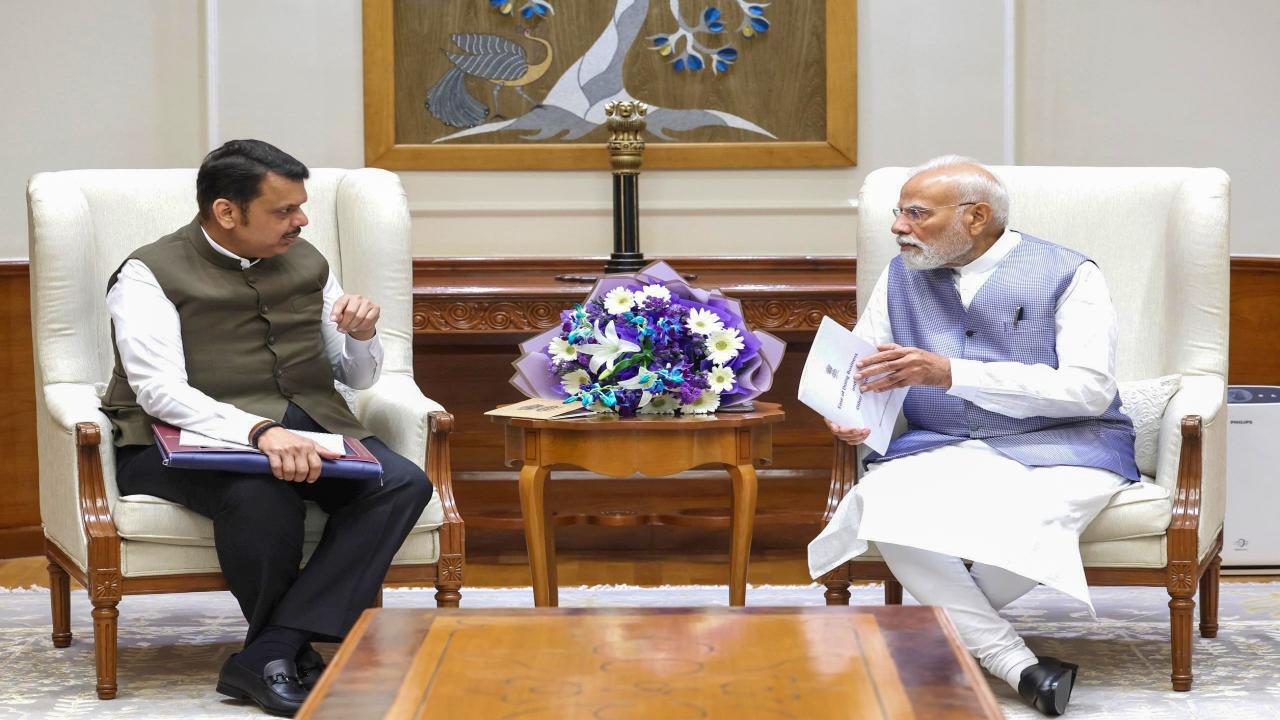Qatari director Mohammed Alibrahim’s mystery thriller Sa3oud Wainah? is set to make local cinema history at the inaugural Doha Film Festival this coming week as Qatar’s first commercial feature to hit the big screen. Starring local talents Mishal Al Dosari, Abdulaziz Al Dorani and Saad Al Naimi, the picture follows a group of friends in a remote farmhouse whose evening takes a sinister turn when a magic trick backfires causing one of them to vanish and a mysterious stranger knocks at the door. Sa3oud Wainah? will premiere as a special screening at the festival running from November 20 to 28, while its Doha-based producer Katara Studios is eyeing a Gulf wide release in the spring of 2026. “It’s our first commercial film and we hope the start of many more Qatari feature films,” says Katara Studios Executive Producer Hussein Fakhri. “I’d like this to kind of be the one that got everybody going.” Spearheaded by the Doha Film Institute (DFI), which has been at the forefront of nurturing cinema culture and filmmaking in Qatar since its official launch in 2010, the new festival comes at a pivotal time for the country’s growing media and entertainment footprint. It also opens amid renewed international focus on the Gulf region following chatter earlier this week that Qatar and its neighbors Saudi Arabia and Abu Dhabi could be part of $71 billion bid by Paramount for Warner Bros Discovery, although this has been batted down by the former. The Sa3oud Wainah? premiere will be just one sign during the festival of how Qatar’s film and TV business ambitions are picking up speed as the Gulf state continues its drive to diversify its economy beyond the oil and natural gas on which its wealth is built. In another first, the country’s fledgeling Qatar Film Committee will be laying on an Industry Days event in the early days of the festival with a clutch of international heavy hitters due to attend alongside key regional and local players. Created in 2022 and falling under the remit of Media City Qatar, the body charged with growing the country as a media and creative industries hub, the committee is headed by Hassan Al Thawadi, the Qatari lawyer who oversaw the organization of the Qatar World Cup. After working on its strategy under the radar until now, the body is expected to make a series of big announcements on funding initiatives and partnerships, the details of which were still being ironed out as this article went live and this correspondent jumped on a Doha-bound flight. The focus of the Qatar Film Committee’s announcements, we are told, will be on taking local and regional filmmaking to the next level through mutually beneficial partnerships with major international players. Even prior to these deals, the local grassroots film scene was taking off. Katara Studios, which is headed by Qatari cinema pioneer Ahmed Al-Baker, who made early local features The Package: Volume 1 (2010) and Lockdown: Red Moon Escape (2012), has another three local and regional features in the works. Fantasy-epic Sari & Amira by Qatari filmmaker A. J. Al Thani is in post-production, while it is aiming to shoot a Bedouin western by Khalifa AlMarri, whose 2021 short Olayan, about a boy and a young camel, travelled to festivals next year, and is development on biopic Sakhr devoted to late Kuwaiti tech pioneer Mohammed Al-Sharekh. “She’s done a super job,” says Fakhri of Al Thani’s work on Sari & Amira, her long-awaited first feature, after well-received shorts The Black Veil and Kashta. “This is our opportunity for a breakthrough film. It’s the one we’re banking on,” he continues, adding that they aiming for picture lock in early 2026 and plan to submit the work to European and North American festivals. “Sakhr is still at the writing and development stage,” he says. “Our writers are working closely with the family. We want to get it right so it’s taking a little more time.” Other recent productions include Zaina Salameh’s Anne Everlasting, about Anne Lorimor who scaled Mount Kilimanjaro at 89-years-old, which won the Donor’s Choice Audience Award at the Phoenix Film Festival in November. The company was also a co-financier on Annemarie Jacir’s epic Palestine 36, recounting the events leading up to the 1936-39 Arab Revolt in which Palestinians rose up against Britain’s colonial rule. The film, which is Palestine’s Oscar entry, world premiered at TIFF; recently won Best Film in Tokyo and touches down at the festival for an invite-only screening as it continues a whirlwind tour which will also take in Marrakech and Saudi Arabia’s Red Sea. “We loved this project, and we jumped on as co-financiers in two tranches, at the beginning and towards the end we made another contribution,” says Fakhri of the latter film. The studio also oversaw the recording of Ben Frost’s score at its facilities, with the Qatari Philharmonic Orchestra performing the music and Matt Howe on board as chief recording office. Alongside these film activities, Katara Studios, which supervised the production of the opening and closing ceremonies of the 2022 FIFA World Cup, runs post-production facilities and produces music and audiovisual content for Qatar’s roster of sporting events including the upcoming Formula 1 tournament at the end of November and the FIFA Arab Cup in December. “We’re a glutton for punishment,” laughs Fakhri as he reels off the company’s projects. Another local supporter of the local emerging cinema scene is The Film House. The privately Qatari-owned venture was launched in 2012 with New Jersey-raised filmmaker, producer and artist Justin Kramer at the helm as CEO. The company’s main activity is producing commercials for local entities and companies such as Qatar Museums and Qatar Airlines and luxury brands, but it also has a track record in helped emerging Qatari and Qatar-based talents get their first shorts off the ground. “One of things I requested when I started the company with the investor was that a portion of our profits every year should be invested into local films,” explains long-time Qatar resident Kramer. “There’s no financial benefit to the company or the owners of the company, but they really believe in supporting this mission that Qataris will be making films and there will be an industry.” Over the years, the company has supported the early works of rising local directors Al Thani, Sudanese Qatar resident Suzannah Mirghani, whose debut feature Cotton Queen world premiered in Venice and plays in competition in Doha, and Sa3oud Wainah? director Alibrahim. “We’ve produced two to three short films a year, some good, some bad, some learning experiences,” says Kramer. “It’s exciting because some of the people we worked with very early on are now making features.” Until recently, The Film House has not had the resources or time to support the filmmakers in their feature endeavours and Kramer has been happy to see them find support elsewhere. This is set to change, however, with the recent creation of Film House Originals with the support of Media City Qatar. Projects on its inaugural slate include non-fiction work Jodari Meno, in which Qatari underwater spearfishing enthusiast Jamal Rashid Al-Khanji explores his personal transformation as he travels the world on a quest to catch a large dogfish tuna. “We’ve helped him get it over the line,” says Kramer. “We worked on development, did a load of shooting, went to Zanzibar with him chasing this giant fish and now it’s nearly done.” Other projects are also coming together with Kramer due to present a selection to the execs in Doha during the festival at a pitch event taking place as part of Qatar Film Committee’s Industry Days. In a personal first, Kramer will also be presenting his directorial debut short film Fahad The Furious, revolving around miscommunication between a young man and his conservative family at the festival. The work is among 10 short films by Qatari or Qatar residents due to be showcased in the festival’s Made in Qatar sidebar. Many of these works and all of their directors have been supported by the DFI in some shape or form which remains the bedrock of Qatar’s local cinema scene. The institute, which is also one of the biggest and most consistent supporters of independent Arab cinema in MENA, has also stepped up its connections with the growing private film and TV ecosystem in recent months through a partnership with Miramax, which is co-owned by Qatar’s BeIn Media Group and Paramount Skydance. Under the initiative announced in August, the partners have established an Arabic-language scripted content program aimed at emerging and established writers from across the MENA region DFI programmer and filmmaker Majid Al-Remaihi, whose 2021 work And Then They Burn the Sea was Qatar’s first film in Locarno in 2021 and Oscar-qualifying short, is viewing the latest developments with curiosity. “Something is coming into play. With Media City Qatar it’s becoming easier to open your company within the production landscape. I get a sense they’re paving the way for a move away from the Doha Film Institute being the only body responsible for everything that happens which is never really the way a thriving ecosystem is meant to happen,” he says. “My hope is that we end up with more jobs and opportunities for growth but at the same time there is this organic space for artistic exploration which the DFI has been creating for all these years.”.
https://deadline.com/2025/11/festival-in-focus-qatar-cinema-industry-days-announcements-1236621953/
Festival In Focus: Qatari Cinema Gears Up For Big Reveal As Int’l Heavy-Hitters Jet In For Game-Changing Industry Days – Doha Film Festival




